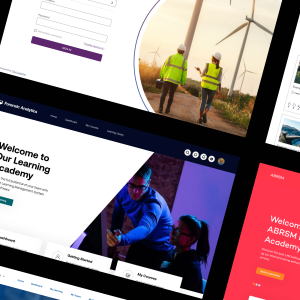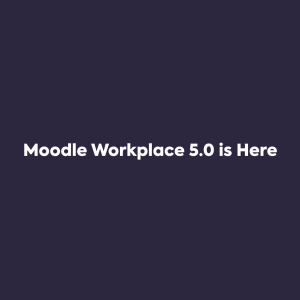Working with clients from a variety of sectors, backgrounds and countries, we see first hand the extent to which workplace learning programmes vary from business to business.
We’ve seen some excellent examples, and we’ve seen some which are, let’s say, less inspiring. In many cases, one of the first steps we take is to encourage our clients to review their workplace learning from the ground up, in order to better understand where they’re starting from, and how we can help them go further.
Here are a few of the key areas which, in our experience, every business needs to get right to create a strong foundation for its workplace learning provision.
1.) Recognition
Providing learners with timely and relevant recognition of their achievements is an important factor in maintaining their engagement with the programme and keeping morale high. There are a number of ways of achieving this via an LMS
Of course, the personal touch is crucial too – face to face praise makes a big difference to learners – but here again, online learning can prove to be a big help.
Enabling managers to quickly review reports of individual or group progress, spot any areas where a learner is struggling and highlight specific successes is extremely valuable. With this information to hand, they can provide much more focused support, mentoring and praise in person.
2.) Collaboration
A properly designed learning management system doesn’t just provide a means of delivering resources to individual learners, it also facilitates communication between the learner, their peers and the course leader or trainer.
One of the drawbacks to the traditional seminar style or “away day” training model is that the opportunity for collaborative learning begins and ends in the session. There’s usually little possibility of follow up with the course leader, and the learners return to their day jobs, potentially never to meet again.
Using an LMS allows for real time or asynchronous communication between course leaders and learners, and between the course participants themselves. Sharing advice, resources or examples of best practice can be done with a few clicks, and activities or assessments can be tackled individually or as a group.
3.) Mentoring
Effective mentoring is key to onboarding new staff and monitoring and supporting their development throughout their career. Annual or even quarterly review sessions can serve as useful milestones, but fall short when it comes to shaping and guiding learning in real time.
Taking the workplace learning function online, and delivering it via a dedicated learning management system opens up a whole world of possibility for the mentor/mentee relationship.
Detailed reporting allows in depth analysis of individual learners’ progress and helps the mentor to home in on specific areas where support or encouragement is needed. Regular assessments can prompt mentors to recommend further training where necessary or fast track topics with which the learner is already familiar.
4.) Flexibility
To keep learners engaged, it’s vital that you have a platform which can cater to a variety of learning styles, as well as offering a range of assessment types. It’s equally important that users can access resources, activities and assessments from a variety of devices, allowing them to fit regular learning sessions into their schedule in the most convenient way for them.
Ideally, you should look at implementing personalised learning plans via an LMS. This allows each learner’s journey to be tailored to their individual needs and to adapt as they progress.
Different resources, activities or assessments can be presented to a user depending on how well they did in a prior exercise. This works well in teams with varying ability levels, or for staff joining from education or moving jobs who have differing experience in your sector.
5.) Convenience
Nothing puts your staff off learning as much as a poorly designed, hard to access or badly performing platform. Removing unnecessary barriers makes for a much more involved and enthusiastic group of learners.
It can be difficult to implement an off-the-shelf learning management system in such a way that it fits perfectly with the way you work. A customisable solution allows you to match up the system to your business and your users much more accurately, refining the user experience, reducing the training load on launch and integrating it with other IT systems you’re using, such as HR tools or office software.
6.) Analysis
Without the opportunity to review, reflect on and make changes to your learning programmes, it’s impossible to spot problems and implement improvements. For the benefit of learners and trainers alike, it’s vital that your learning platform provides you with accurate and relevant data on course progression, attainment and engagement.
This allows you to spot and resolve any issues in real time, as well as giving a higher level overview which can be used to refine and alter the programme to better meet the needs of future participants.
This list is not exhaustive – there are a multitude of factors to consider if you want to implement truly effective workplace learning. But considering each of the points above is an excellent starting point for any organisation looking to make the first steps into online learning, refine or improve their current programme or switch their existing learning management system.
For help with creating your own successful workplace learning provision, get in touch on the details below







